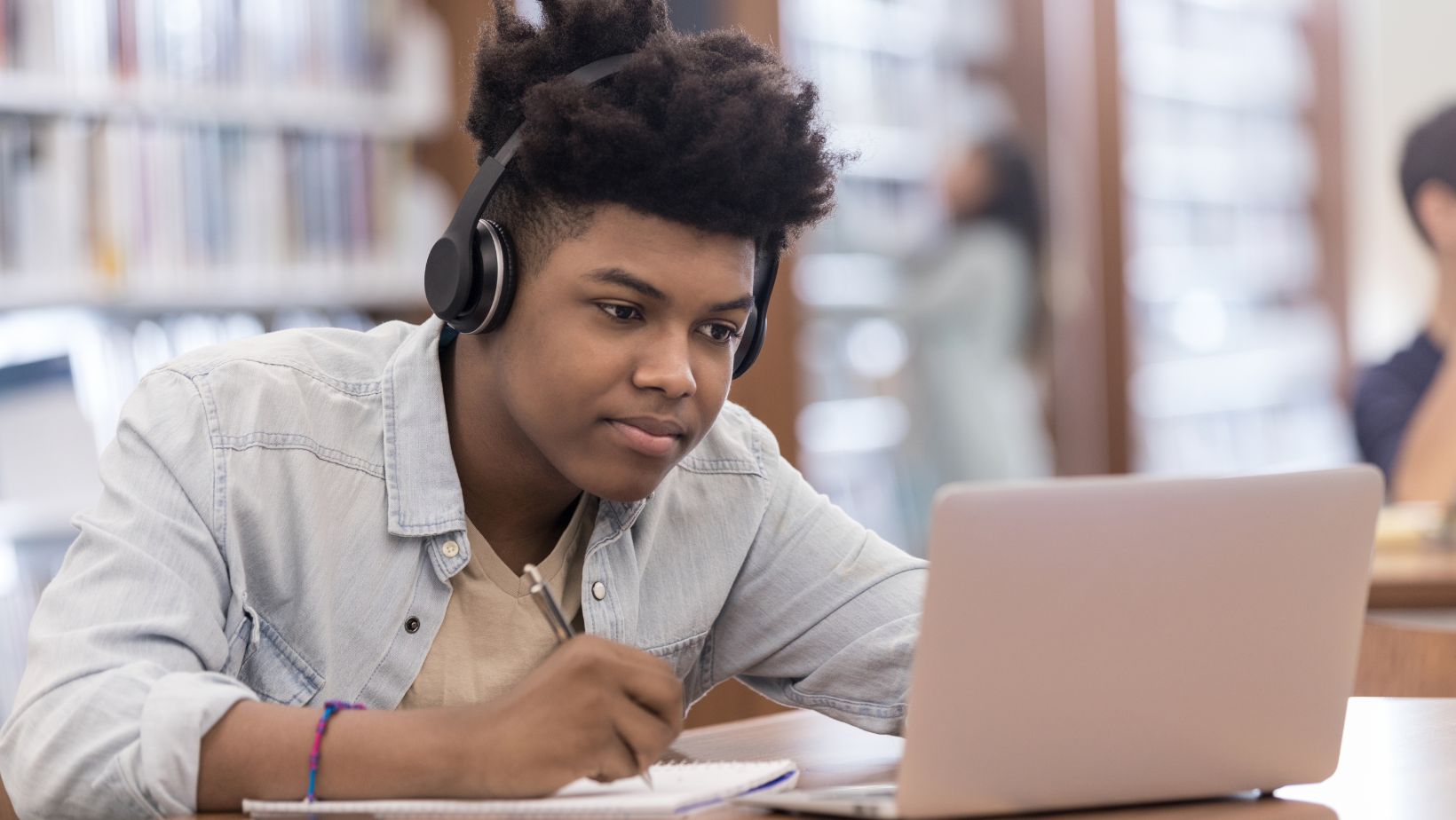
As teenagers navigate the complex journey from childhood to adulthood, fostering independence in their learning process becomes increasingly crucial. This transition not only prepares them for higher education and future careers but also builds confidence and self-reliance.
Understanding the Importance of Independent Learning
Independent learning is a skill that goes beyond academic success. It cultivates critical thinking, problem-solving abilities, and self-motivation – qualities that are essential in today’s rapidly changing world. By encouraging teens to take ownership of their education, we prepare them for the challenges and opportunities they’ll face in college and beyond.
The National Association of School Psychologists emphasizes that fostering independence in learning helps teens develop a sense of competence and autonomy, which are crucial for their overall well-being and future success.
Create a Supportive Learning Environment
The first step in promoting independent learning is to create an environment that supports and encourages it. This involves both physical and emotional aspects of the learning space.
Physically, ensure that teens have a dedicated study area free from distractions. This could be a desk in their room, a quiet corner of the house, or even a favorite spot at the local library. The key is to have a space that signals it’s time to focus and learn.

Emotionally, foster an atmosphere that values curiosity and learning. Encourage questions, celebrate efforts (not just results), and model a love for learning in your own life. The American Psychological Association suggests that parents who show enthusiasm for learning can significantly influence their children’s attitudes towards education.
Teach Effective Time Management Skills
One of the cornerstones of independent learning is the ability to manage time effectively. Many teens struggle with balancing schoolwork, extracurricular activities, social life, and personal time. Teaching them time management skills can be a game-changer.
Introduce tools like planners, digital calendars, or time management apps. The Pomodoro Technique, which involves focused work sessions followed by short breaks, can be particularly effective for teens. Encourage them to break larger tasks into smaller, manageable chunks and to prioritize their responsibilities.
The U.S. Department of Education provides resources on time management for students, which can be a helpful starting point for both parents and teens.
Encourage Goal Setting and Self-Reflection
Independent learners are adept at setting goals and reflecting on their progress. Help teens develop this skill by guiding them through the process of setting SMART goals: Specific, Measurable, Achievable, Relevant, and Time-bound.
Regularly encourage self-reflection. This could involve keeping a learning journal, having weekly check-ins, or using self-assessment tools. The act of reflecting on what worked, what didn’t, and why helps teens take ownership of their learning process and make necessary adjustments.
Promote Critical Thinking and Problem-Solving
Independent learning thrives on critical thinking and problem-solving skills. Encourage teens to question information, seek multiple perspectives, and develop their own opinions. Engage them in discussions about current events, ethical dilemmas, or complex topics related to their studies.
Introduce problem-solving frameworks that they can apply across various subjects. The engineering design process, for example, can be adapted to tackle problems in many areas, not just science and technology.
Organizations like the Critical Thinking Community offer resources and exercises to help develop these crucial skills.
Teach Research and Information Literacy Skills
In the age of information overload, the ability to find, evaluate, and use information effectively is crucial. Teach teens how to conduct thorough research using reliable sources, how to cite properly, and how to discern credible information from misinformation.
Libraries are excellent resources for developing these skills. Many offer workshops on research techniques and information literacy. The American Library Association provides guidelines and resources for information literacy that can be valuable for both teens and parents.
Foster a Growth Mindset
A growth mindset – the belief that abilities can be developed through dedication and hard work – is fundamental to independent learning. Encourage teens to view challenges as opportunities for growth rather than insurmountable obstacles.

Praise effort and strategy rather than innate talent. When faced with setbacks, guide them in analyzing what went wrong and how they can improve next time. The work of psychologist Carol Dweck on growth mindset provides valuable insights into fostering this attitude in learners.
Gradually Increase Responsibility
Independence is built gradually. Start by giving teens more control over their homework routine or study schedule. As they demonstrate responsibility, increase their autonomy in other areas of their education.
This might involve letting them choose elective courses, manage their own study groups, or take the lead in parent-teacher conferences. The key is to provide support while stepping back enough to allow them to take ownership of their learning.
Utilize Project-Based Learning
Project-based learning can be an excellent way to foster independence. It allows teens to explore topics in-depth, manage their time, and often collaborate with peers. Encourage them to pursue projects related to their interests or to tackle real-world problems in their community.
The Buck Institute for Education offers resources and guidelines for implementing project-based learning, which can be adapted for both classroom and home learning environments.
Embrace Failure as a Learning Opportunity
One of the biggest hurdles to independence is the fear of failure. Help teens understand that mistakes and setbacks are a natural and valuable part of the learning process. Encourage them to take risks in their learning, try new approaches, and learn from their errors.
Share stories of famous failures that led to success, like Thomas Edison’s numerous attempts before inventing the light bulb. The National Inventors Hall of Fame provides inspiring stories of inventors and their journeys, which can motivate teens to persist through challenges.
Find Online Resources To Help Them
There is a wealth of online resources that can support independent learning. Encourage teens to explore educational websites, online courses, and digital tools that can supplement their formal education and cater to their individual interests and learning styles.
Teach them how to evaluate the credibility of online resources and how to use them effectively. This might involve showing them how to cross-reference information, check the credentials of content creators, and critically assess the information they find online.
Remember to discuss online safety and digital citizenship. The Common Sense Media organization provides excellent resources for teens and parents on navigating the digital world responsibly. You can find high school homework help at Studocu. They offer study guides and study notes as well as other help with homework.
Encourage Peer Learning and Collaboration
While independence is important, collaboration skills are equally valuable. Encourage teens to form study groups, participate in academic clubs, or engage in online forums related to their subjects of interest.
Peer learning can reinforce understanding, expose teens to different perspectives, and help them develop communication and teamwork skills. It also provides a support network that can be motivating and encouraging.
Support Extracurricular Exploration
Extracurricular activities can be powerful drivers of independent learning. Whether it’s joining a robotics club, participating in Model UN, or volunteering for a local charity, these activities allow teens to pursue their interests, develop new skills, and take on leadership roles.
Encourage teens to explore various extracurricular options but let them take the lead in choosing and committing to activities. This autonomy helps them develop decision-making skills and learn to balance their commitments.
Provide Constructive Feedback
Feedback is crucial for growth, but it needs to be delivered effectively to foster independence. Focus on providing specific, constructive feedback that guides rather than directs. Instead of simply pointing out errors, ask questions that prompt teens to reflect on their work and come up with solutions.
The Harvard Graduate School of Education offers insights on effective feedback strategies that can be adapted for use with teens in various learning contexts.

















